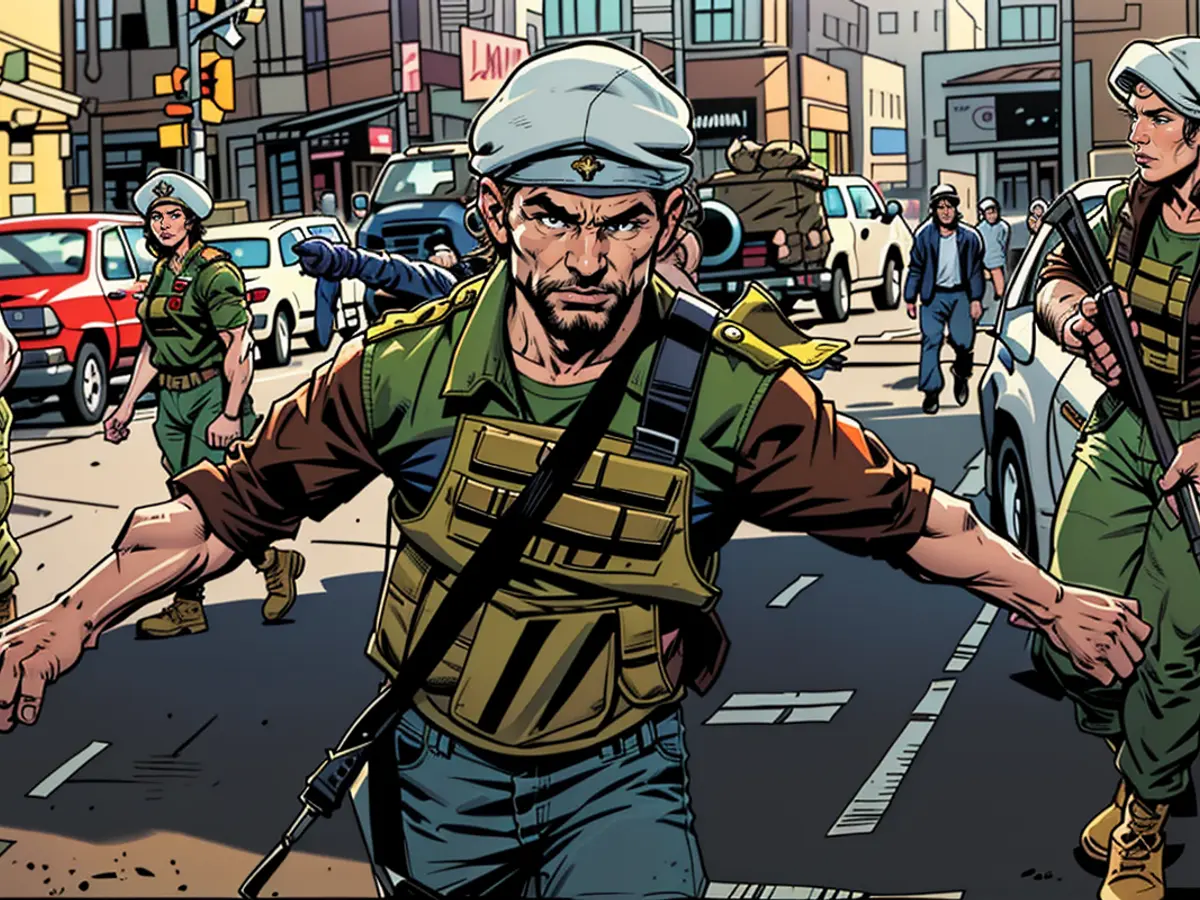Questions and answers - What is known about the attempted coup in Bolivia
## Contents
- What happened?
- Who was behind the coup?
- Were there casualties?
- How did the Bolivian government react?
- Against whom was the coup directed?
- How often does the military act up in Latin America?
- How did neighboring countries and other states react?
Before the presidential elections, the situation in Bolivia was tense. In the midst of the campaign, a general tried to stage a rebellion – but without success. Why did he do it? And what does it mean for the government? Answers to the most important questions:
What happened?
On a Wednesday, soldiers with tanks appeared before the Presidential Palace in La Paz, as journalists from the news agency AFP reported. They attempted to break through a metal gate of the palace with a tank.
President Luis Arce and a disgruntled general faced off against each other on the grounds of the Government Palace Quemado Agua. "Withdraw all soldiers. That's an order," the President called out. "Will you not obey me?" Later, AFP reporters saw the soldiers retreating.
Who was behind the coup?
Army Chief General Juan José Zúñiga Macías was responsible. He was arrested in La Paz that same evening, according to local media reports. The Prosecutor General launched investigations against the officer and his accomplices. Zúñiga was accused of terrorism and armed insurrection against the security and sovereignty of the state.
In a statement to the media, Zúñiga hinted that the coup had been coordinated with President Arce. "The President told me that the situation was very bad. It was necessary to prepare something to boost his popularity," General Zúñiga said on television before his arrest. "I asked him, 'Shall we bring out the tanks?' And he answered, 'Bring them out'."
Were there casualties?
According to Interior Minister Eduardo del Castillo, nine people were reportedly injured during the failed coup attempt.
How did the Bolivian government react?
Shortly after their confrontation, President Luis Arce relieved Army Chief General Juan José Zúñiga Macías of his duties and replaced the entire military leadership. In the Presidential Palace, the new military commander, José Wilson Sánchez, was sworn in. He called for the restoration of peace and order. "I order that all mobilized forces on the streets return to their units," Sánchez said and added, "We ask that the blood of our soldiers not be shed." The new heads of the military branches ordered the troops to withdraw from the inner city of the government seat La Paz. "I thank the Bolivian people," Arce declared from the balcony of the Government Palace.
"We condemn the irregular mobilizations of certain units of the Bolivian Army. Democracy must be respected," Bolivian President Luis Arce wrote on the news platform X. "We cannot allow coup attempts."
"We reaffirm our belief that democracy is the only way to resolve differences and that institutions and the rule of law must be respected," Morales further wrote. "We confirm our demand that all involved in this crime be arrested and brought before the court."
Tensions in Bolivia have intensified prior to the parliamentary elections in the year 2025. It appears that the general intended to prevent the former president Evo Morales (2006-2019) from running against his former ally Arce, resulting in a deep rift within the ruling socialist party and greater political instability.
Morales, the former coca grower, is planning to run for president despite the court rulings that prohibit him from doing so. Currently, Morales and the incumbent president Arce are competing for leadership roles in their party MAS.
How often does the Military interfere in Latin America?
The military in Latin America frequently stages coups. Many countries in the region were ruled by military juntas during the 1970s and 1980s. In Argentina, Chile, and Brazil, tens of thousands of people fell victim to their violent rule.
How did neighboring countries and other states react?
Several Latin American presidents condemned the military's move in Bolivia. "We condemn any form of coup in Bolivia and reaffirm our commitment to the people and democracy in our brother country," said Brazil's President Luiz Inácio Lula da Silva. Chile's President Gabriel Boric wrote on the news platform X: "We cannot tolerate any violation of the constitutional order in Bolivia or elsewhere."
President Xiomara Castro of Honduras declared: "The military has once again carried out a criminal coup." She called on the members of the Community of Latin American and Caribbean States (CELAC) to condemn the fascism that has threatened democracy in Bolivia.
President Santiago Peña of Paraguay urged respect for democracy and the rule of law. His colleague in Chile, Gabriel Boric, expressed concern. Any violation of the constitutional order should not be tolerated. "We condemn the attempted coup in Bolivia in the strongest terms. We fully support President Luis Alberto Arce Catacora," the Mexican President Andrés Manuel López Obrador declared on X.
European Commission President Ursula von der Leyen also criticized the coup attempt in Bolivia sharply. "I condemn in no uncertain terms the attempts to overthrow the democratically elected government of Bolivia," she wrote late on a Wednesday evening on the platform X. The European Union stands with democracies.
The United Nations expressed concern over the situation in Bolivia. "We urge the Bolivian society, including the military, to act responsibly and uphold democratic values," the UN statement read.
In the context of Latin America, Bolivia's failed coup attempt is not an isolated incident, as the military has historically been involved in numerous coups in the region. After the coup attempt, South American leaders condemned the act, with President Luiz Inácio Lula da Silva of Brazil stating, "We condemn any form of coup in Bolivia and reaffirm our commitment to the people and democracy in our brother country."








